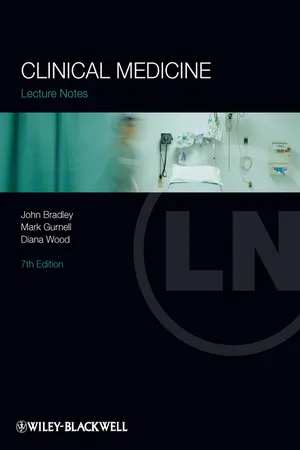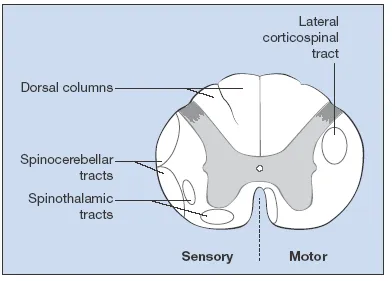
Clinical Medicine
John R. Bradley, Mark Gurnell, Diana F. Wood
- English
- ePUB (disponibile sull'app)
- Disponibile su iOS e Android
Clinical Medicine
John R. Bradley, Mark Gurnell, Diana F. Wood
Informazioni sul libro
Clinical Medicine Lecture Notes provides a comprehensive, accessible introduction to the management and treatment of medical conditions. A short manual of techniques on communication and physical examination in Part 1 is supported by the core knowledge required on diseases specific to each body system in Part 2.
Combining readability with high quality illustrations, this seventh editionhas been thoroughlyrevised to reflect up to date practice in examination and clinical investigation, and advances in the evidence base supporting modern day clinical practice.Numerous figures and tables help distil the information for revision purposes, and there are new chapters on the medical interview and assessment.
Whether you need to develop your knowledge for clinical practice, or refresh that knowledge in the run up to examinations, Clinical Medicine Lecture Notes will help foster a systematic approach to the clinical situation for all medical students and hospital doctors.
Domande frequenti
Informazioni

Effective Consultation
| Skill | Examples |
| Content skills | |
| What the doctor communicates | Knowledge-based: appropriate questions and responses; accurate information gathering and explanation to patient; clear discussion of investigation and treatments based on knowledge |
| Process skills | |
| How the doctor communicates | Skills-based: verbal and non-verbal communication skills; relationship building; organising and structuring the interview |
| Perceptual skills | |
| What the doctor is thinking | Attitude-based: clinical reasoning and problem-solving skills; attitudes towards the patient; feelings and thoughts about the patient; awareness of internal biases |
Structure
- initiating the session
- gathering information (including from physical examination)
- explanation and planning
- closing the session
- organisation...